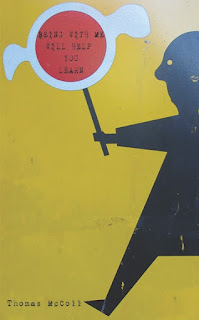For the last couple of years, I have
been toying with the idea for a collection of stories that could be read as
stand-alone fiction, but were interconnected in a way that reveals a whole
narrative world. Down in the Devil Hole (US) is my attempt at that.
How
would you describe the kind of characters that populate this collection?
Well, these folks are rural southerners
and rough around the edges for sure. Some could be considered white trash
criminals, but I would like to think that there are some honest, salt of the
earth types sprinkled in for good measure.
What
message if any would you hope the reader takes away from this work?
Provided that it is written well enough
to pull the reader in and get them involved, I would hope that they find their
own meaning. My own take away is that there is darkness just under the surface
in any town or burg you travel through, and if you look hard enough, you’ll
find some twisted shit.
What
is your writing process like?
Imagine a medieval torture device…no
just kidding, I don’t put myself under much pressure to write. When the ideas come,
I put them down in a rough form and polish from there. If they don’t come, I do
something else for a while. I’m a lazy writer I guess. When I do get a viable
idea, I would say I spend the most amount of time trying to find the voice for
the piece. Once that is established, the rest is pretty straight forward.
Finding the tone and voice is the hardest part for me.
Why
write crime fiction?
I am fascinated with the concept of
choice and how it affects our lives. Through crime fiction, I can explore how
bad choices lead to catastrophic consequences in people’s lives. I can watch a
poor bastard come unraveled and spiral into self-destruction from the comfort
of my desk chair. That kind of thing is fun to me. I’m a sick puppy.
Who
are your literary heroes?
There are so many. The top two would be Jim
Thompson for his ability to craft cold blooded killers out of seemingly ordinary
people, and Elmore Leonard because his dialogue leaps off the page. There is a
long list of indie writers who inform and inspire my work and I won’t take the
time to list them all here, but a few standouts would be Todd Robinson for his
use of humor, that guy is funny. Angel Colon for his unique, colorful
characters and Paul Brazill for the pacing and witty banter he injects into his
dialogue. Again there are so many, and I find it very exciting that the genre
has so many talented voices that are still up and coming and ready to take it
to the next level.



















